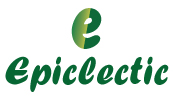Introduction
Planning and running a self-catering business in the UK isn’t just about offering a cosy place to stay—it about understands the numbers that drive your success. As we know, the occupancy rate of self -catering business in the UK is one of the most important indicators. These figures reveal how well your property is performing, how it stacks up against the market, and whether you’re leaving potential income on the table. But let’s be honest: navigating occupancy trends can feel overwhelming. With shifting travel behaviors, seasonal highs and lows, and rising competition, it’s easy to feel lost. Understanding occupancy rates is not optional, it is essential. Whether you are a property owner, investor, or part of the tourism industry, this is what we have created this guide for. Read on to discover the real insights, strategies, and opportunities that can help you fill your calendar, maximize profits, and stay ahead in this fast-changing market.
Understanding Occupancy Rates
If you run or manage a self-catering property in the UK, occupancy rates are more than just numbers.
These are essentially your performance reports. This report shows your property’s occupancy rate, which is how many nights it actually booked.
It helps track profitability, identify gaps, and make smarter business decisions.
This metric isn’t just for investors—it’s essential for day-to-day operators too. A consistently low occupancy rate could signal missed opportunities. A high one? That means your strategy is working.
You don’t need to be a data analyst to understand what these numbers mean.
You just need to know what influences them.
What Affects Occupancy Rates?
● Seasonality: Demand usually spikes during holidays, weekends, and school breaks. Winter months often show lower bookings.
● Location: Properties near coastlines, cities, or national parks often enjoy stronger year-round demand.
● Marketing Visibility: A well-presented listing with great photos and reviews can boost your calendar quickly.
● Pricing Strategy: Smart, flexible pricing makes your listing stand out during low and high demand.
Current Trends in UK Self-Catering Occupancy Rates
National Overview
Occupancy trends across the UK self-catering sector reveal a clear pattern—performance depends heavily on both geography and timing. On average, self-catering accommodations across the UK show moderate year-round occupancy, with significant spikes during peak travel seasons.
Take the Lake District, for example. Known for its scenic beauty and tourist appeal, this region reports an average annual occupancy rate close to 53%. However, during the busy summer months, bookings can rise sharply, often reaching up to 75%.
This trend highlights a common scenario across many parts of the UK: seasonal travel drives the bulk of short-term rental income.
Regional Insights
Scotland
In April 2024, self-catering occupancy in Scotland dipped to 38.28%. That’s a noticeable drop from 45.95% in April the previous year. This shift could reflect broader economic factors, leading to changes in consumer travel behavior.
Wales
Wales has shown resilience and strong demand. In August 2023, occupancy levels peaked at an impressive 90%. This performance aligns with the region’s reputation for family-friendly holiday destinations during the summer break.
Cornwall
Cornwall remains one of the top-performing self-catering regions. In May and June 2024, occupancy exceeded 77%, with several weeks outperforming the previous year by more than 4.5%. The coastal charm and early summer weather clearly work in its favour.
Challenges Facing Self-Catering Businesses
Economic Pressures: Then and Now
The UK holiday rental market has seen ups and downs over the decades. After the 2008 recession, domestic travel surged. People preferred short local holidays over costly overseas trips. This boosted demand for self-catering stays.
Fast forward to the 2020s, and the COVID-19 pandemic sparked a similar trend. With international travel restrictions in place, many Britons turned to countryside cottages and coastal retreats.
But now, the cost of living crisis has changed the game again. Rising bills and inflation are shrinking disposable income.
Fewer families can afford even short breaks. Bookings have dipped across many regions. Owners are now cutting prices or offering deals just to stay competitive.
Market Saturation Over Time
A decade ago, self-catering listings were limited to local agencies or classified ads. Then came platforms like Airbnb and Vrbo. They made it easy for anyone to enter the holiday rental market.
The result? Thousands of new properties flooded the market. From seaside apartments to shepherd huts, choices exploded.
This growth created opportunities—but also fierce competition. In popular areas, supply now outweighs demand in low seasons. New hosts are learning it’s not a passive income game anymore.
Standing out now takes effort, strategy, and investment in guest experience.
Evolving Guest Preferences
The modern traveller isn’t looking for just a bed and a kitchen. They want flexibility, comfort, and convenience.
In recent years, short breaks have gained popularity. In 2023, 28% of bookings were for stays under 4 days. By 2024, that rose to 32%.
Guests now look for flexible check-in, cancellation policies, and digital-friendly spaces. Weekend escapes and midweek mini-holidays are on the rise.
The old model of week-long Saturday-to-Saturday stays is becoming outdated. Hosts who adapt to new behaviours are the ones filling calendars today.
How to Improve Occupancy Rates in the UK Self-Catering Business
Improving occupancy isn’t just about lowering prices. It’s about creating value, standing out, and meeting guest expectations. Whether you’re struggling during off-peak seasons or want to increase year-round bookings, the right strategies make all the difference.
1. Enhance Your Property’s Appeal
First impressions count. Guests scroll quickly—what they see must grab attention.
Use high-resolution images that highlight space, lighting, and key amenities.
Showcase features like hot tubs, fire pits, or pet-friendly setups.
Keep the interior updated. Even small decor upgrades can increase bookings.
2. Optimise Your Pricing Strategy
Static pricing no longer works in a dynamic market.
Use pricing tools or software to adjust rates based on demand.
Offer weekend-only rates, midweek discounts, or longer-stay incentives.
Monitor competitors’ rates in your region to stay competitive.
Guests compare listings carefully. Smart pricing makes your offer more attractive.
3. Invest in Professional Listings
Where you list matters. The most important thing is how you list, write descriptions that tell a story – not just a list of features.
Use location-based keywords and phrases like “romantic getaway in the Cotswolds” or “dog-friendly Cornwall retreat.”
Keep your listing active. Regular updates show algorithms—and guests—you’re attentive.
Authenticity is needed to build trust, and this authenticity leads to bookings.
4. Focus on Guest Experience
Reviews are the most powerful marketing tool in the self-catering world.
Offer small extras like welcome hampers or local guides.
Communicate clearly before and after booking.
Respond to feedback with kindness—even when it’s not perfect.
The more experience you gain, the more likely you are to get repeat guests and referrals.
5. Leverage Seasonal Campaigns
Use seasons to your advantage. Off-peak months don’t have to mean empty calendars.
Create themed packages (autumn escapes, Valentine’s retreats, winter walks with log fires).
Partner with local businesses to add experiences like spa days or dining deals.
Market to niche audiences like remote workers or couples seeking solitude.
Creativity can fill the quietest months.
Common Pain Points for Self-Catering Property Owners
Running a self-catering business isn’t as simple as handing over the keys. Many property owners face ongoing challenges that impact both bookings and profits. The first step in solving the problem is to identify these pain points.
1. Empty Calendars During Off-Peak Seasons
Low season can feel like a ghost town. Weeks go by without a single booking.
You offer discounts, but they barely move the needle. You wonder if it’s even worth staying open year-round.
You’re not alone. Many hosts across the UK face this issue. Winter months, especially in rural areas, can be painfully quiet.
The solution? Targeted seasonal marketing and niche audience outreach.
2. High Costs With Low Return
Maintenance, utilities, and platform fees quickly add up. When occupancy drops, every cost feels heavier.
Some months, your income barely covers your expenses. This creates stress and uncertainty.
Running a self-catering business should bring freedom—not financial anxiety. But for many, that’s not the reality.
Reducing fixed costs and maximising high-earning weeks can help balance things out.
3. Struggling to Get Visibility
Your listing looks great, but it’s buried in the search results.
You update your photos, tweak the title, and still see no difference. Guests book others while yours stays empty.
It’s frustrating. And it makes you doubt your efforts.
Better SEO, guest reviews, and smarter use of platforms can improve your visibility.
4. Dealing With Last-Minute Cancellations
A full week booked—then cancelled just two days before. No time to rebook. No income.
Some guests cancel casually, but you pay the price. You may feel like it’s out of your control and that it’s unfair.
Flexible but protective cancellation policies can limit losses. So can direct booking incentives.
5. Unclear Booking Trends
You don’t know when bookings will pick up—or why they slow down.
Every month feels unpredictable. One summer is busy, the next is quiet. You’re left guessing.
Without tracking tools, it’s hard to plan ahead. Data-driven platforms can help you forecast and adapt.
Frequently Asked Questions (FAQ)
1. What is a good occupancy rate for a self-catering property in the UK?
A good occupancy rate typically falls between 60% and 75%. However, this may vary depending on the region and season.
2. Why does my property have high traffic but low bookings?
Your pricing, photos, or listing details might not match guest expectations. Negative reviews can also hurt conversion rates.
3. How can I boost bookings in the off-season?
Target specific audiences like remote workers or couples. Offer seasonal packages and adjust pricing to stay competitive.
4. Are short stays better than long stays?
Short stays fill gaps and boost calendar activity. Long stays reduce turnover costs. A mix often works best.
5. Should I lower my prices to improve occupancy?
Only if it aligns with market demand. Dynamic pricing tools help you stay competitive without undercutting your value.
6. Which platforms give the best occupancy results?
It depends on your audience. Airbnb, Booking.com, and direct booking websites all work well when managed properly.
7. How do I reduce last-minute cancellations?
Use firm cancellation policies with clear rules. Offer booking flexibility to reduce no-shows while protecting your income.
8. How often should I update my listing?
At least once a month. Regular updates show algorithms and guests that your property is well-managed and active.
9. What role do reviews play in occupancy rates?
A strong review profile builds trust. Properties with consistent 5-star reviews tend to rank higher and book faster.
10. Should you hire a property manager?
If you lack time or live far away, yes. A good manager can improve occupancy, guest experience, and earnings.
Conclusion
Understanding and improving occupancy rates in the UK self-catering business is more than just chasing numbers. It’s about knowing your market, staying flexible, and creating meaningful guest experiences.
Managing rentals comes with challenges at every level—but they’re all solvable with the right strategies.
With the right tools, strategy, and support, you can turn low seasons into steady income and one-time guests into loyal customers.
Today’s holiday rental market demands dedication—but you don’t have to navigate it solo.
From financial planning to tax strategies, Eternity Accountants is here to help you succeed.
Let’s Help You Maximise Your Property’s Potential
Need help understanding your property’s financial performance?
Schedule your complimentary tax and accounting consultation today.
Struggling with seasonal cash flow?
Let us guide you through smart forecasting and budgeting tools.
Worried about your self-catering tax obligations?
We specialise in UK holiday let tax strategies and compliance.
Ready to grow your occupancy and income?
Contact Eternity Accountants for tailored support built around your goals.
Email us. Book your free consultation.
Let’s build a stronger, more profitable self-catering business—together.




